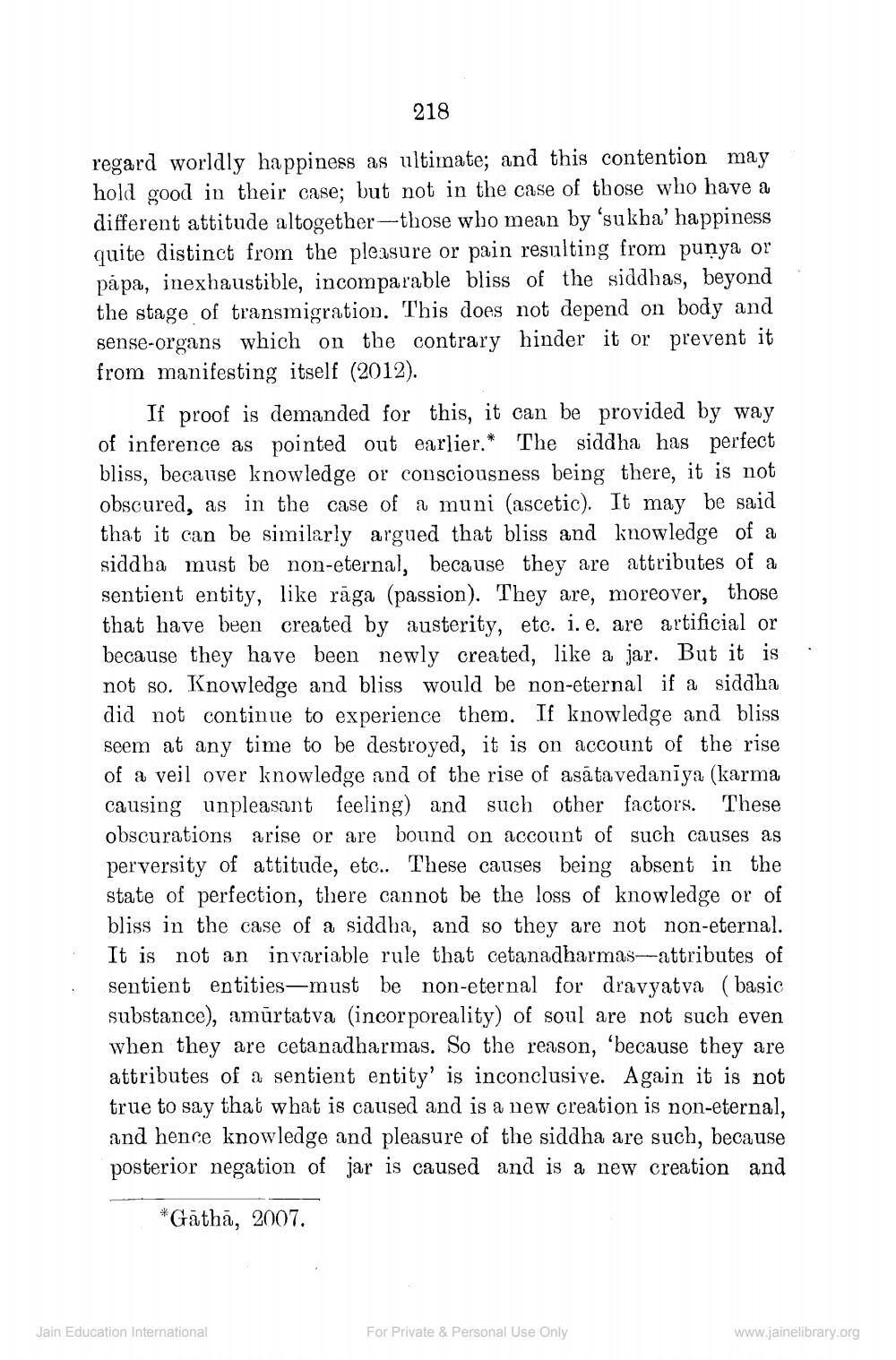________________
218
regard worldly happiness as ultimate; and this contention may hold good in their case; but not in the case of those who have a different attitude altogether--those who mean by 'sukha' happiness quite distinct from the pleasure or pain resulting from punya or pápa, inexhaustible, incomparable bliss of the siddhas, beyond the stage of transmigration. This does not depend on body and sense-organs which on the contrary hinder it or prevent it from manifesting itself (2012).
If proof is demanded for this, it can be provided by way of inference as pointed out earlier.* The siddha has perfect bliss, because knowledge or consciousness being there, it is not obscured, as in the case of a muni (ascetic). It may be said that it can be similarly argued that bliss and knowledge of a siddha must be non-eternal, because they are attributes of a sentient entity, like rāga (passion). They are, moreover, those that have been created by austerity, etc. i. e. are artificial or because they have been newly created, like a jar. But it is not so. Knowledge and bliss would be non-eternal if a siddha did not continue to experience them. If knowledge and bliss seem at any time to be destroyed, it is on account of the rise of a veil over knowledge and of the rise of asā tavedaniya (karma causing unpleasant feeling) and such other factors. These obscurations arise or are bound on account of such causes as perversity of attitude, etc.. These causes being absent in the state of perfection, there cannot be the loss of knowledge or of bliss in the case of a siddha, and so they are not non-eternal. It is not an invariable rule that cetanadharmas-attributes of sentient entities-must be non-eternal for dravyatva (basic substance), amūrtatva (incorporeality) of soul are not such even when they are cetanadharmas. So the reason, 'because they are attributes of a sentient entity' is inconclusive. Again it is not true to say that what is caused and is a new creation is non-eternal, and hence knowledge and pleasure of the siddha are such, because posterior negation of jar is caused and is a new creation and
*Gathā, 2007.
Jain Education International
For Private & Personal Use Only
www.jainelibrary.org




